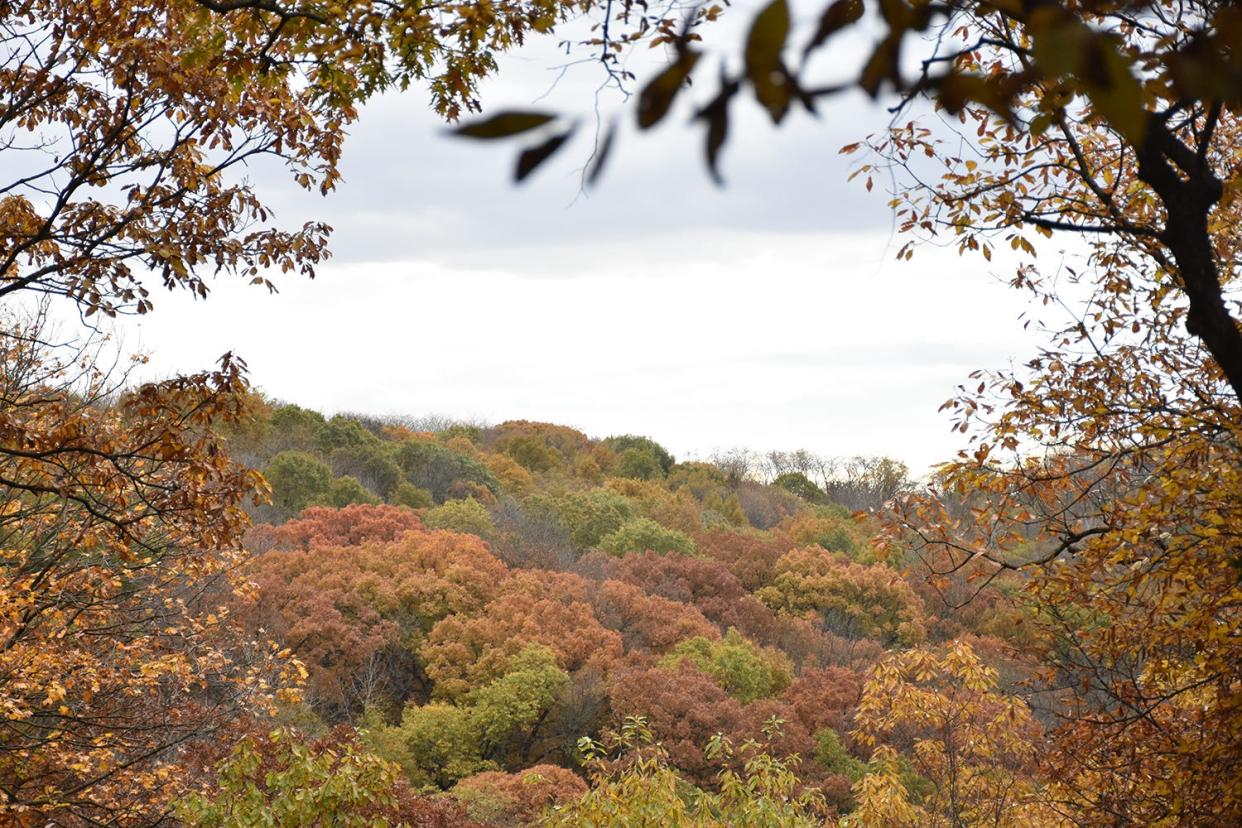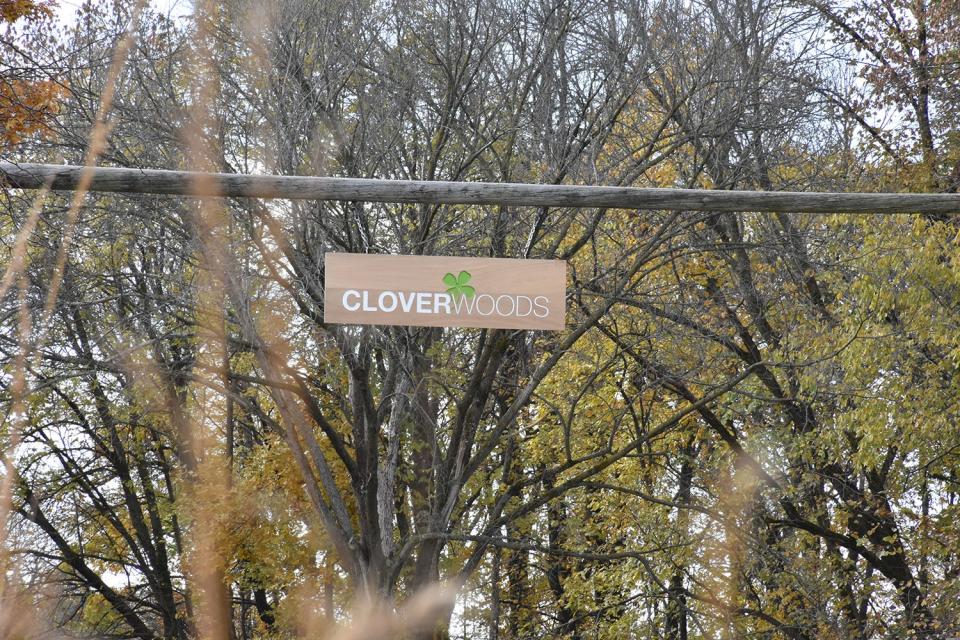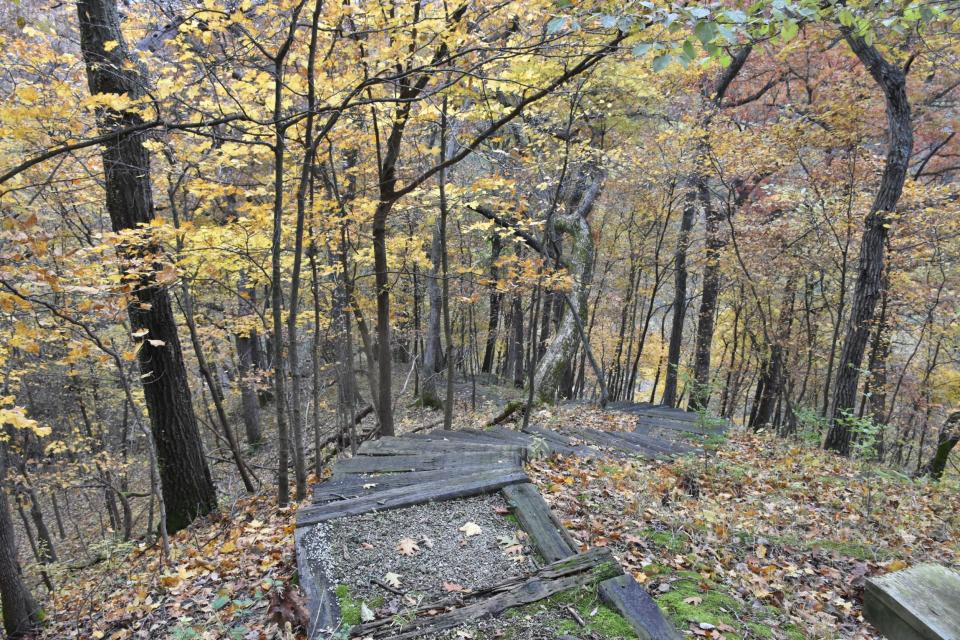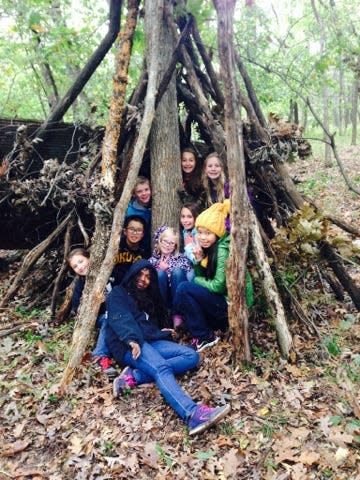Former Iowa 4-H camp damaged by derecho to be demolished as state takes over

A pair of central Iowa nature camps that served generations of youths and still elicit strong memories for those who attended programs there are slated for demolition.
Agreements approved Nov. 17 by the Iowa Economic Development Authority will permit the clearance of five buildings that formerly housed the Conservation Education Center at Springbrook State Park north of Guthrie Center and about 30 structures at the former Clover Woods 4-H camp northwest of Madrid.
The buildings at both sites are considered historic, so under state law, the Iowa Department of Natural Resources must mitigate their loss. The IEDA had to sign off on the plans because the office of the State Historical Preservation Officer is under its jurisdiction.
At Clover Woods, the DNR will design and build a display at the entrance of the parking lot with information on the history and use of the site. To compensate for the Conservation Education Center, it will update to historic standards its plans to restore a Civilian Conservation Corps shelter at Trapper’s Bay State Park on Silver Lake in the Iowa Great Lakes region.

The Iowa Department of Administrative Services will oversee the demolition work.
The Iowa Natural Heritage Foundation bought the multiple parcels of the 1,011-acre former 4-H camp in 2019 for about $3 million and has resold more than half of the land to the state, said Joe McGovern, president of foundation. The tract lies along the east bank of the Des Moines River and is adjacent to the Saylorville Wildlife Management Area and the Iowa Arboretum and Gardens. It's about the same size as Ledges State Park, a short distance upriver.
“It’s about 70% woodlands with a lot of oak and hickory. It’s one of the most pristine woodlands I have ever seen,” said McGovern.
Iowa 4-H Executive Director Emily Saveraid said parting with the camp wasn't easy.
“It was a tough decision to sell it. A lot of young people have gone there and a lot of great memories were made there,” Saveraid said.
Iowa Natural Heritage is retaining ownership of the rest of the land, and intends to sell most of it to the state as DNR funding becomes available.
The DNR described the property as an “aesthetic tract reflecting one of the largest contiguous regions of upland forest in central Iowa.”
Iowa Natural Heritage head: 'We wanted to make sure it was preserved'

Although most of the land currently in DNR ownership is open to public hunting, the area where the dilapidated buildings are located is closed due to safety concerns, Monica Thelen of the DNR’s wildlife bureau said. Once demolition of the buildings is completed, the area where the buildings are located will be converted to grassland, Thelen said.
The potential for saving any of the buildings at the former camp was blown away in the August 2020 derecho, which heavily damaged the structures, McGovern said.
“We wish this could have stayed a camp forever, but when it went on the open market, we wanted to make sure it was preserved,” he said.
More: Tree theft is a rising crime in Iowa, with thieves stealing them off people's property
Saveraid said maintaining the sprawling facility was very expensive and proceeds from the sale have been put in an endowment to perpetually fund other 4-H programs and day camps.
She said it also was important to preserve the woodlands if possible and the result is an opportunity for the public to continue to utilize and enjoy the property.
“In the end, it really was a win-win situation,” she said.
The 75th anniversary of the 4-H Foundation in Iowa occurs in 2024 and the legacy of the camp will be a big part of the celebration, Saveraid said.
More: Two people in Iowa have died while hunting. Here's how to stay safe:
“We want to tell that story of how the idea of the camp literally started by people sitting around a campfire. The initial fundraising started with 4-H members themselves who would ride their bikes from house to house raising donations,” she said.
The 4-H Foundation was created in 1949 for the purpose of building the camp. There were five "villages" that could house up to 300 campers, as well as a ropes course, a climbing tower, zip line, swimming pool, 20 miles of trails, a pond and an archery and shooting range.
Ottumwa teacher on Conservation Education Center: 'I will always miss it'

The Conservation Education Center was built in 1969 with a mission to train Iowa teachers in outdoor programming. Entirely within the boundaries of 930-acre Springbrook State Park, the facility included dormitory sleeping and a centralized cafeteria with a kitchen. It evolved into an overnight destination for school classes.
For people like Roland-Story teacher Kris Vinson and former teacher Peg Steffen, the CEC will be greatly missed. The facility stopped operating as an educational facility in spring 2017.
“When I heard that (the CEC) was closing down and I later saw pictures of how the buildings have become in disrepair it made me so sad I wanted to cry,” said Vinson.
The Roland-Story brought seventh graders to the CEC for more 30 years, said Vinson, who herself went there for 17 years as a teacher and one year as a student.
From 2018: How Trump administration pressure to dump 4-H's LGBT policy led to Iowa leader's firing
She said seeing the educational staff of the CEC as well as the kitchen staff each year was “like visiting family,” and she still uses some of the CEC curriculum for science instruction.
“The experience of going to Springbrook is something the kids will always remember. For some kids, it was the first time they stayed overnight anywhere but their own home. The overnight trip created a lot of bonding and interacting,” Vinson said.
“I will always miss it,” said Steffen, a teacher in Ottumwa for 25 years. “Springbrook expanded opportunities for outdoor education by helping teachers. It was a defining place in terms of workshops for teachers to expand outdoor education opportunities. I have a lot of happy memories from there."
She said outdoor education for students has shifted to shorter trips to county conservation areas and urban natural areas.
“There are other areas teachers can go to around the state that are more easily accessible regionally,” she said.
This article originally appeared on Des Moines Register: 4-H camp, Conservation Education Center slated for demolition

